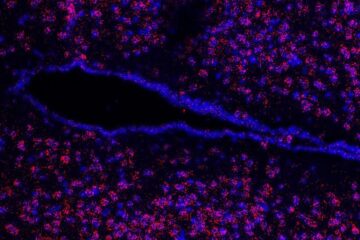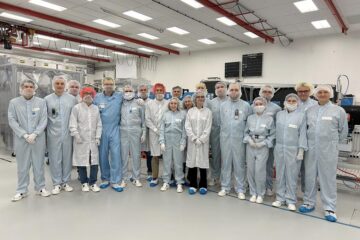Research looks for sunburn treatment

A research team led by Dr Anna Nicolaou, a Reader in Biological Chemistry at the University of Bradford, will examine the biological mechanisms underlying sunburn and why it particularly affects people who tan poorly.
It is hoped that the research could conclude in a treatment for sunburn and other skin disorders that are affected by solar radiation, including skin cancer.
With a £230,000 grant from the Wellcome Trust, the research team will test whether melanocytes that do not actively produce melanin (a substance produced by certain skin cells called melanocytes) discharge inflammatory mediators, including pro-inflammatory hormones called prostaglandins, which cause the redness, irritation and swelling of the skin that is observed in sunburn.
The team will also look at why people who tan easily are less likely to develop sunburn, contrasting to pale-skinned people who tend to sunburn easier.
They will look at whether or not melanocortins (hormones discharged from the anterior pituitary gland that control the production of melanin by melanocytes) play a significant role in the relationship between tanning and sunburn by stimulating melanin production and inhibiting prostaglandin production.
Dr Nicolaou is leading teams of researchers form the Universities of Bradford, Manchester and Newcastle who will experiment on volunteers using artificial sunlight to establish how quick volunteers are affected by sunlight and sunburn.
Cells taken from the volunteers after they have been exposed to artificial sunlight will be monitored and placed under different types of conditions. Prostaglandins and other similar mediators produced by the cells under all these conditions will be studied in detail using the state-of-the-art mass spectrometry facilities at the University of Bradford’s Analytical Centre.
The results of these studies will help determine the effects of sunlight on different types of skin and this way discover the mechanism that links sunburn and tanning.
Dr Nicolaou said: “We hope that our research will confirm that melanocytes are involved in many functions of the skin biology and have many other important effects other than tanning. There is a good possibility that we may develop a therapy that can prevent or treat sunburn at its early stages.
“We also hope that this research will confirm that people with paler skin will never tan, no matter how hard they try.
“People put their skin through such bad treatment in the hot weather in order to get a tan. Hopefully our research will convince people to look after their skin and protect themselves from harmful rays.”
Media Contact
More Information:
http://www.bradford.ac.ukAll latest news from the category: Health and Medicine
This subject area encompasses research and studies in the field of human medicine.
Among the wide-ranging list of topics covered here are anesthesiology, anatomy, surgery, human genetics, hygiene and environmental medicine, internal medicine, neurology, pharmacology, physiology, urology and dental medicine.
Newest articles

Cost-effective, high-capacity, and cyclable lithium-ion battery cathodes
Charge-recharge cycling of lithium-superrich iron oxide, a cost-effective and high-capacity cathode for new-generation lithium-ion batteries, can be greatly improved by doping with readily available mineral elements. The energy capacity and…

New regulator of eating behaviour identified
The rapidly escalating prevalence of overweight and obesity poses a significant medical challenge worldwide. In addition to people’s changing lifestyles, genetic factors also play a key role in the development…

Harnessing Machine Learning for Breakthroughs with High-Power Lasers
A team of international scientists from Lawrence Livermore National Laboratory (LLNL), Fraunhofer Institute for Laser Technology ILT, and the Extreme Light Infrastructure (ELI) collaborated on an experiment to optimise high-intensity…





















